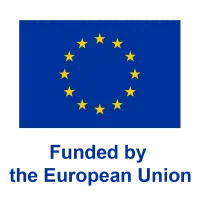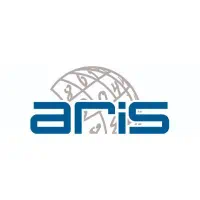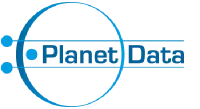Projects
GENOME: GENerative and connected intelligence for 6G Open ManagemEnt
Jan 2026 — Dec 2029

AI and large language models (LLMs) are increasingly used to handle complex tasks across many fields. In network management, they offer powerful tools to automate operations, improve efficiency, and optimise performance. Supported by the Marie Skłodowska-Curie Actions programme, the GENOME project aims to design, develop, and test LLM-based solutions for the autonomous management of different network domains.
EnerTEF: Common European-scale Energy Artificial Intelligence Federated Testing and Experimentation Facility
Nov 2024 — Oct 2027

EnerTEF responds to the soaring demand for reliable AI products in the evolving energy sector. It pioneers a Common Federated AI Testing and Experimentation Facility to bridge the gap between demand and limited availability of rigorously tested AI products. Aligned with European Commission initiatives, EnerTEF leverages foundational projects like the Common European Energy Data Space and AIoD. Through specialized ‘AI Living Labs,’ EnerTEF fosters collaboration between energy stakeholders and AI developers to create adaptive models that align with evolving energy systems. ‘Bridging Centralized Access’ ensures data privacy and security in federated testing, adhering to EU regulations and addressing ethical concerns. ‘Seamless Federated Integration’ tackles integrating AI technologies across domains, enhancing cross-sector collaboration. ‘Long-term Sustainability and Go-to-Market Strategy’ focuses on bringing AI innovations to market.
GOTOTWIN: Advancing Renewable Energy in the Adriatic Ionian Region through the Use of Digital Twins
Jan 2024 — Dec 2026
AI-ASSIST: Artificial intelligence based real-time power system stability assessment
Oct 2023 — Sep 2026

The AI-ASSIST project focuses on developing a real-time dynamic stability assessment (DSA) tool for electric power systems, using artificial intelligence to enhance stability monitoring in response to rapidly changing environmental and technological demands. The project aims to integrate advanced monitoring infrastructure with AI techniques to predict and address potential instabilities in power systems. Organizations involved in this initiative include the University of Ljubljana’s Faculty of Electrical Engineering (UL-FE), the Jožef Stefan Institute (JSI), and ELES, Slovenias national transmission system operator. The Jožef Stefan Institute is responsible for developing and optimizing AI techniques for database management and real-time recognition of power system conditions.
NOO TimeSmart: Timeliness of Information in Smart Grids Networks
Apr 2025 — Jun 2026

The MSCA PF TimeSmart project continues under additional ARIS funding through the NOO initiative, supporting the reintegration and further international engagement of Slovenian researchers. The work of NOO TimeSmart focuses on advancing the practical deployment, robustness, and scalability of the methods developed in the MSCA TimeSmart fellowship. The project strengthens cloud-enabled processing of timely information, integrates AoI-aware forecasting and intelligent energy management into operational frameworks, and evaluates their performance in larger, more diverse smart-grid settings. By deepening the role of the Age of Information in real-time decision-making and coordination across distributed energy assets, the project moves the TimeSmart concepts closer to real-world readiness.
MISA: Multi-lidar Intelligence for Smart City Applications
Apr 2024 — Mar 2026

The MISA (Multi-lidar Intelligence for Smart City Applications) project aims to strengthen cooperation between the research group at Jozef Stefan Institute (JSI) in Slovenia and Shinkuma Lab at Shibaura Institute of Technology (SIT) in Tokyo, Japan. The scientific cooperation will focus on optimizing LiDAR (Light Detection and Ranging) sensors using machine learning, with JSI contributing expertise in time series analysis and SIT leveraging its experience with smart city applications. The collaboration will address two key challenges: enhancing LiDAR sensor fusion accuracy through deep reinforcement learning and mitigating sparsity in LiDAR data using Graph Neural Networks.
AeroDrops - Selectively Detecting Airborne Droplets in Real-Time
Jan 2025 — Dec 2025

AeroDrops is the first device capable of selectively detecting airborne droplets in real time. The device detects and counts respiratory droplets, enabling smart, data-driven ventilation control that helps reducing infection risk – addressing a key public health challenge highlighted during the COVID-19 pandemic.The technology was developed at the Jožef Stefan Institute. To raise the technology readiness level and bring solution closer to the market, the project received funding through RSF-IND call at JSI. Departments F5 and E6 are collaborating with industrial partners Nanotul d.o.o. and Comsensus d.o.o. to develop a market-ready device and further develop the technology.
NANCY: An Artificial Intelligent Aided Unified Network for Secure Beyond 5G Long Term Evolution
Jan 2023 — Dec 2025

The overall aim of NANCY is to introduce a secure and intelligent architecture for the beyond the fifth generation (B5G) wireless network. Leveraging AI and blockchain, NANCY enables secure and intelligent resource management, flexible networking, and orchestration. In this direction, novel architectures, namely point-to-point (P2P) connectivity for device-to-device connectivity, mesh networking, and relay-based communications, as well as protocols for medium access, mobility management, and resource allocation will be designed. These architectures and protocols will make the most by jointly optimizing the midhaul, and fronthaul. This is expected to enable truly distributed intelligence and transform the network to a low-power computer. Likewise, by following a holistic optimization approach and leveraging the developments in blockchain, NANCY aims at supporting E2E personalized, multi-tenant and perpetual protection.
TIMIN6: Timely and Sustainable Information Management in 6G Networks
Oct 2023 — Sep 2025

The main goal of the TIMIN6 project is to design a new data collection method based on the Age of Information (AoI) metric in connection with aspects of sustainable resource management. AoI is a relatively new and not yet fully understood metric in the field of information science. Considering the AoI can significantly impact energy consumption in data collection, but many aspects and the actual applicability of the metric still need to be explored. While most research in this area focuses on finding more efficient ways to extract information from already collected data, the TIMIN6 project will focus on the question of how frequently devices should collect and transmit data to operate in a more sustainable manner. The goal of this approach is to reduce unnecessarily wasted energy in the billions of devices that will make up 6G networks, enabling a more sustainable future. The project is funded by Slovenian Research and Innovation Agency (ARIS).
SiQUID: Slovenian Quantum Communication Infrastructure Demonstration
Jan 2023 — Jul 2025

The European Union is currently preparing to implement the infrastructure for a Europe-wide network for quantum communication. Research groups, industrial partners, and government representatives from all European member states have devised projects to perform proof-of-principle demonstrations of quantum communication and quantum key distribution (QKD). To this end, quantum communication infrastructure will be implemented on the national level in all EU member states to facilitate the international connection of those networks later. The Slovenian Quantum Communication Infrastructure Demonstration (SiQUID) project will be the first to implement quantum key distribution (QKD) in Slovenia. The project will establish quantum communication links between multiple government nodes in Slovenia and a test-bed quantum network between research institutions in Ljubljana for the research and development of advanced quantum communication protocols.
TimeSmart: Timeliness of Information in Smart Grids Networks
Oct 2022 — Mar 2025

TimeSmart project will investigate the applicability of the novel Age of Information metric in smart grid networks. While the metric has become a valuable tool for measuring the system’s performance, its practical value and impact in the real-time system are left unanswered. This project seeks to remedy that by applying the metric to a system in which the timing of collected data, currently measured through jitter or latency, profoundly impacts management and control. The AoI offers a new perspective on how the system should collect and process information, as such decisions are also based on the context of processed information(their semantic nature). In turn, the new approach can offer an innovative way of improving the efficiency of renewable electrical energy supply and electrical loads by taking advantage of the available edge infrastructure. This project aims to adopt the AoI metric in smart grid networks to improve the energy transmission efficiency, achievable through more timely collected information, to save energy.
BD4OPEM
Jan 2020 — Dec 2023

Energy power systems face big challenges to cope with grid integration demands of an ever-increasing number of distributed generation and consumption devices in an interconnected world. Technology offers a huge range of opportunities to develop solutions in the uncertain current and upcoming Energy market situation. This proposal considers Open Innovation as a natural solution to create a seamless link and balance between energy stakeholders needs and the solutions to be developed.
RESILOC
Jan 2019 — Dec 2022

Resilience is defined by the United Nations as “the ability to resist, absorb and accommodate to the effects of a hazard, in a timely and efficient manner”. Thus, resilient communities are those in which their citizens, environment, businesses, and infrastructures have the capacity to withstand, adapt, and recover in a timely manner from any kind of hazards they face, either planned or unplanned. In recent years efforts have been spent to tackle resilience and there is, still, a long path forward in defining an EU valid and sound approach to the problem. RESILOC aims at studying and implementing a holistic framework of studies, methods and software instruments that combines the physical with the less tangible aspects associated with human behaviour. The study-oriented section of the framework will move from a thorough collection and analysis of literature and stories from the many approaches to resilience adopted all over the World. The results of the studies will lead to the definition of a set of new methods and strategies where the assessment of the resilience indicators of a community will be performed together with simulations on the “what-if” certain measures are taken.
FED4FIRE+
Jan 2017 — Sep 2021
Fed4FIRE+ is an Integrating Project under the European Union’s Programme Horizon 2020, addressing the work programme topic Future Internet Research and Experimentation. It started in January 2017 and will run for 60 months, until the end of September 2021. The Fed4FIRE+ project is the successor of the Fed4FIRE project.
DEFENDER
Jan 2017 — Dec 2020

Defending the European Energy Infrastructures is a research project funded by is a research project funded by the European Comission under the Horizon2020 programme (Call: CIP-2016-2017-1. Topic: CIP-01-2016-2017). Critical Energy infrastructures (CEI) protection and security are becoming of utmost importance in our everyday life. However, cyber and system-theoretic approaches fail to provide appropriate security levels to CEIs, since they are often used in isolation and build on incomplete attack models, resulting in silos-like security management fragmented operational policies. To face these challenges, DEFENDER will (i) model CEIs as distributed Cyber-Physical Systems for managing the potential reciprocal effects of cyber and physical threats (ii) deploy a novel security governance model, which leverages on lifecycle assessment for cost-effective security management over the time (iii) bring people at centre stage by empowering them as virtual sensors for threat detection, as first level emergency responders to attacks, or by considering workforce as potential threats. DEFENDER will adapt, integrate, upscale and validate a number of TRL 4-5 technologies and deploy them within a TRL7 integrated yet adaptable framework for CEI security, resilience and self-healing “by design”, with a view to address, detect, and mitigate cyber-physical threats.
e.BOTTLE
Jan 2019 — Dec 2020

Vzpostavitev naprednih IKT storitev za analizo življenjskega cikla steklene embalaže – eBOTTLE. Naročnik projekta je RAZVOJNI CENTER eNeM Novi materiali, d.o.o. Sodelovanje se nanaša na izvajanje projekta pod naslovom »Pametno multikomponentno embalažno steklo» – projekt eBOTTLE, ki je bil s strani Ministrstva za gospodarski razvoj in tehnologijo potrjen za sofinanciranje v okviru Javnega razpisa. Odsek za komunikacijske sisteme sodeluje na operaciji kot zunanji izvajalec raziskovalno-razvojnih aktivnosti pri razvoju in vzpostavitvi naprednih IKT storitev za analizo življenjskega cikla steklene embalaže.
NRG5
Oct 2017 — Sep 2020

The NRG-5 project envisages contributing to the 5G PPP/5G Initiative research and development activities and participation at the relevant 5G Working Groups by delivering a novel 5G-PPP compliant, decentralized, secure and resilient framework, with highly availability able to homogeneously model and virtualize multi-homed, static or moving, hardware constrained (smart energy) devices, edge computing resources and elastic virtualized services over electricity and gas infrastructure assets combined with the telecommunications infrastructure covering the full spectrum of the communication and computational needs.
SAAM: Supporting Active Ageing Through Multimodal Coaching
Oct 2017 — Sep 2020

The project aims to develop and validate a Virtual Assistant-Coach that supports the process of healthy ageing by preserving physical, cognitive, mental, and social well-being of older citizens, and prolonging the period of life they can live safely at home. SAAM focuses on innovative, unobtrusive technology-enabled approaches, with a novel and practical emphasis on wearable and ambient sensing.
EuConNeCts3
Jan 2017 — Dec 2019

It is the purpose of EuConNeCts3, a Supporting Action, to organise the following 2 editions, 2018 and 2019, of the EC sponsored conference in the area of communication networks and systems (EuCNC – European Conference on Networks and Communications), continuing the successful organisation of this conference since 2014. EuCNC will continue to serve as a technical and scientific conference for researchers, namely European ones, to show their work in the area of Telecommunications, focusing on communication networks and systems, and also reaching services and applications. The conference will not be restricted to European researchers, rather aiming at attracting others from all the other regions in the world. It will also serve as a showcase for the work developed by projects co-financed by the EC, namely those arising from H2020 calls, and more specifically, those addressing 5G and beyond. Nonetheless, it also aims at attracting works in the area of communication networks and systems from other objectives.
eWINE
Jan 2016 — Dec 2018

The elastic Wireless Networking Experimentation (eWINE) is a research project funded by the European Comission under the Horizon2020 programme (Call: H2020-ICT-2015. Topic: ICT-12-2015). The main goal of eWINE is to realize elastic networks that can scale to a high number of users in a short timespan through the use of an agile infrastructure (intelligent software and flexible hardware), enabling: 1) dynamic on-demand end-to-end wireless connectivity service provisioning, 2) elastic resource sharing in dense heterogeneous and small cell networks (HetSNets), 3) intelligent and informed configuration of the physical layer.
WISHFUL
Jan 2015 — Dec 2017

The WiSHFUL project (Wireless Software and Hardware platforms for Flexible and Unified radio and network controL) will reduce the threshold for experimentation in view of wireless innovation creation and by increasing the realism of experimentation. The WiSHFUL project is funded by the European Commission’s Horizon 2020 Programme under grant agreement n645274. The project started on January 1st 2015 and will last for 36 months. Our role: Open call extension of the WiSHFUL project with addition of LOG-a-TEC testbed 5G capillary capabilities and adaptation of WiSHFUL universal programming interfaces for the use in the LOG-a-TEC testbed.
CREW
Jan 2011 — Dec 2015

The main target of the Cognitive Radio Experimentation World – CREW project is to establish an open federated test platform, which facilitates experimentally-driven research on advanced spectrum sensing, cognitive radio and cognitive networking strategies in view of horizontal and vertical spectrum sharing in licensed and unlicensed bands.
PlanetData
Jan 2010 — Dec 2014

The PlanetData project is built around three objectives that together ensure the creation of a durable community made up of academic and industrial partners. This community will be supported in conducting research in the large-scale data management area through the provision of data sets and access to tailored data management technology. From the research point of view, the focus is on large-scale data management. Sensorlab provides sensor data, raw and annotated and services based on these.